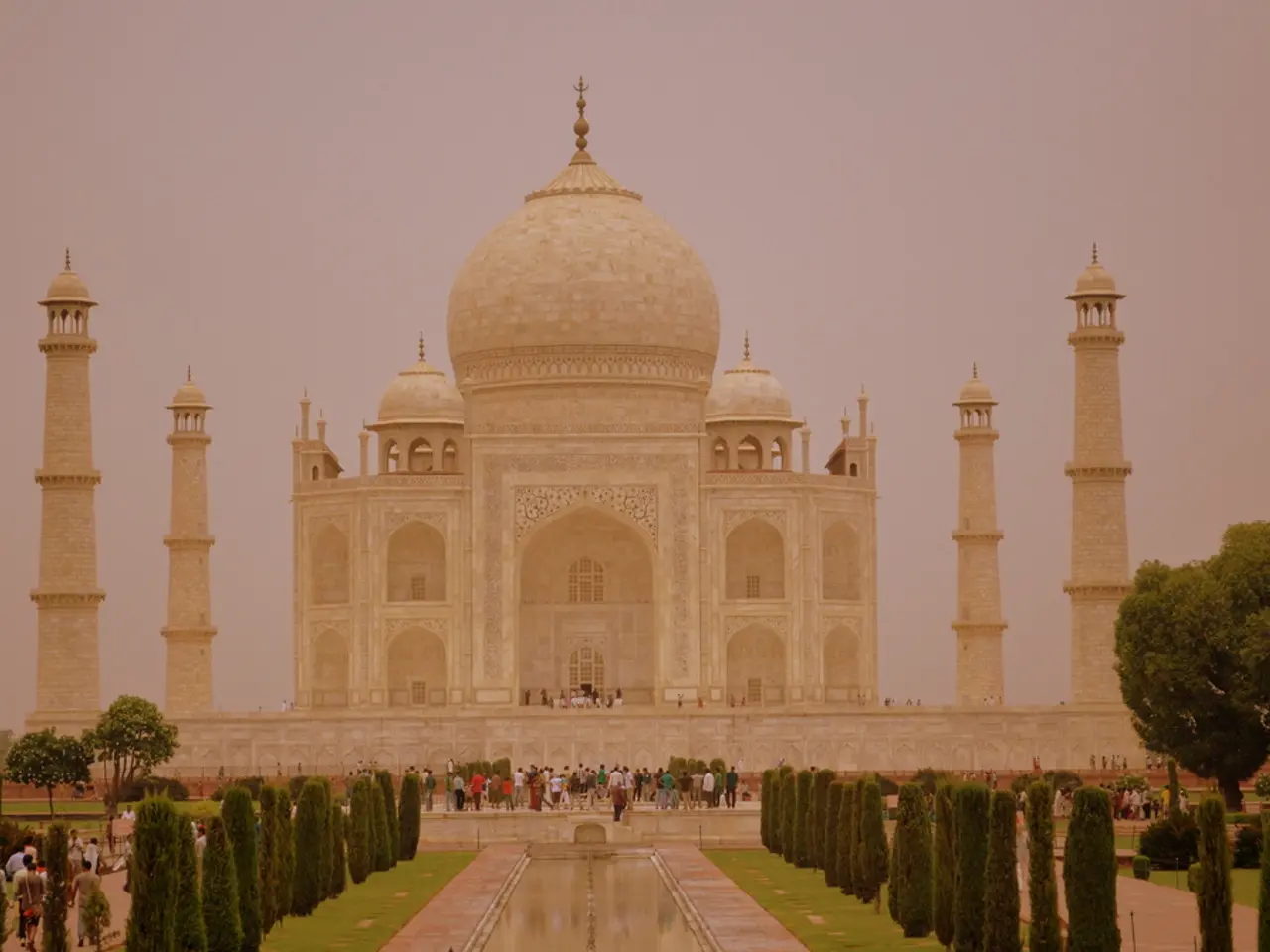Unrest in Nagpur: Cease the pointless disputes
In the heart of Nagpur, India, a historical controversy has been brewing around the Mughal emperor Aurangzeb's tomb in Khuldabad. This modest grave, consistent with Aurangzeb's own instructions for a humble burial, has become a focal point of debate due to the emperor's polarising legacy as a ruler who reigned from 1658 to 1707.
Recent clashes in March 2025, instigated by demands for the tomb's removal, resulted in multiple injuries and the deployment of police forces to restore order. The dispute revolves around Aurangzeb's controversial reign, with some groups advocating for the tomb's demolition, citing his divisive legacy.
The government, through the Maharashtra state administration, has called for restraint and urged a peaceful resolution amid rising communal tensions. However, political rhetoric has at times escalated the situation. For instance, Minister Nitesh Rane made controversial remarks about the tomb, comparing it derogatorily to a toilet, further inflaming tensions and prompting demands for his removal to prevent communal discord.
Khuldabad, known as the "Valley of Saints" for its many Sufi shrines, is a symbolic location reflecting complex religious and cultural histories. The controversy highlights wider communal sensitivities in Indian society, where historical memory and identity politics often intersect, particularly regarding Mughal-era figures like Aurangzeb.
The debate over Aurangzeb's tomb involves opinions about his treatment of his kin and his religious beliefs. Some believe he was a brute who tortured, maimed, and killed his own kin, while others see him as a frugal man who despised luxuries. There are also claims that he plundered religious places, but others argue he helped build shrines representing other faiths.
Religious passions are fueling the issue, with some individuals determined to protect the honor of the Mughal emperor, willing to use violence to accomplish their goal. This underscores the need for a peaceful resolution that respects historical accuracy and avoids violence or the distortion of history.
The business of discovering historical reasons to promote hatred has no place in a civilized society. The government is mandated to uphold the rule of law, and should apply it ruthlessly to anyone seeking to sow seeds of hatred or cause distress to ordinary people.
In India, freedom of speech and expression is a fundamental right, but there are instances where this right is misused to distort history and defame historical figures. The government in power has booked admirers of the Mughal ruler for sedition, highlighting the delicate balance between upholding historical truth and preserving social harmony.
After Aurangzeb's demise, the region came under the rule of several foreign powers, including the British. Today, the region is known as Aurangabad/Chhatrapati Sambhaji Nagar district, a testament to the region's rich and complex history.
India, as the world's largest secular democracy, should strive to uphold the values of peace, respect, and unity in the face of divisive issues such as the controversy surrounding Aurangzeb's tomb. The actions and sentiments in Nagpur serve as a reminder of the importance of maintaining a peaceful and harmonious society, where historical memory is respected and communal tensions are avoided.
The controversy over Aurangzeb's tomb in Nagpur has become a topic of general news, as it intersects with war-and-conflicts, politics, and crime-and-justice due to the escalating violence and controversial rhetoric. This debate, reflecting India's complex religious and cultural histories, raises questions about the appropriate use of freedom of speech, as well as the government's role in maintaining social harmony and historical accuracy.






